Australian Labor’s values in conflict over Hamas attacks
What governments and parties do at moments of historic crisis brands them before history. This week Labor was branded.
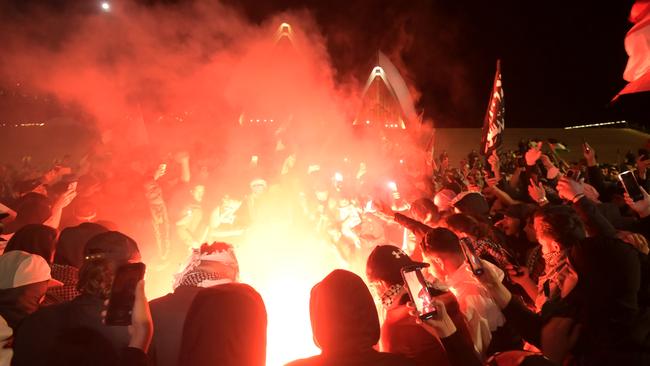
It took several days but the Prime Minister eventually said it: “We will stand by Israel.” How much of the Labor Party actually stands with Israel and for how long is unknown. The Albanese government will be caught in the political vortex of this crisis – an assault by Hamas terrorists on Israelis that invokes images of genocide and Israel’s coming ground offensive, with Prime Minister Benjamin Netanyahu declaring “every Hamas terrorist is a dead man”.
For Australia there are fundamental requirements at this moment: an unflinching moral clarity about the depravity of the Hamas massacres; an alert to the grave risks to Israel and the US from an extended war in Gaza that is the precise goal sought by Hamas; and domestic leadership during a challenging time for Australian multiculturalism where pious words about restraint won’t be enough.
The Australian government’s initial response to the Hamas assault was inadequate and low-key. Albanese should have delivered a major address, convened an early meeting of the national security committee of cabinet and engaged in an immediate public and symbolic reaching out to the Jewish community. All this is just obvious and a no-brainer.
It should have happened. It didn’t. None of this is to suggest Albanese, Foreign Minister, Penny Wong and Defence Minister Richard Marles did not do a competent job in their individual responses. Albanese was not to know the extent of the erupting failure of the wider Labor Party.
Last weekend marked the worst single day for loss of life by the Jewish people since the Holocaust. Quickly on display was the failure of the Labor Party’s moral compass, seen above all in the leadership fiasco behind the shameful events at the Sydney Opera House.
The trepidation of so many Labor figures about taking an immediate moral stand against the anti-Jewish slaughter by Hamas was astonishing yet revealing of a party struggling to find a language and response appropriate to the historic crisis that was unfolding. It tells much about modern Labor. As astute media operatives Labor, it seemed, wanted to downplay the significance of the event.
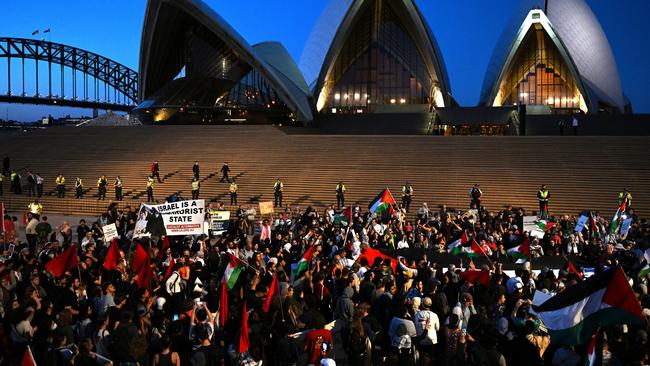
The timing was unfortunate. Albanese was deeply preoccupied in the last week of the campaign for the voice. By Wednesday, Albanese and Wong had delivered moving and heartfelt assurances to the Jewish community. But the omens of the coming domestic challenge were apparent: intense emotional public support for Israel collided with a fierce pro-Palestinian element that will demonstrate in the streets against Israel’s coming military action.
Albanese said Australia offered Israel “political support”. He did not believe any request would be forthcoming for military assistance. But the situation is highly volatile and dangerous. It is in Australia’s strategic interest that Israel and its chief supporting ally, the US, are not caught in a protracted war in Gaza with high death rates among both Israelis and Palestinians amid a surge of international hostility claiming overreaction by Netanyahu and a humanitarian catastrophe.
The unknown related question becomes: can Israel succeed in changing the terms of confrontation and achieve its goal of eliminating Hamas as a military force?
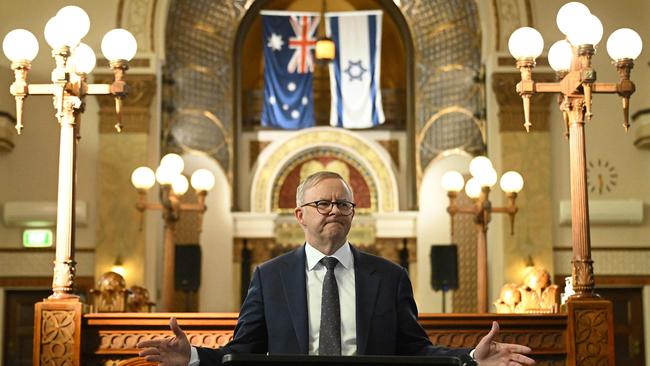
At the outset US President Joe Biden offered moral, emotional and strategic support for Israel, saying last weekend: “Today, the people of Israel are under attack, orchestrated by a terrorist organisation, Hamas. In this moment of tragedy, I want to say to them and to the world and to terrorists everywhere that the United States stands with Israel. We will not ever fail to have their back.”
But at the end of the week Biden said that with all its “anger and frustration” Israel must ensure it “operates by the rules of war”. The pivotal relationship now is Biden-Netanyahu. How much backing does Biden offer? How much does he try to guide Netanyahu? The global stakes for the US are immense, given war in Ukraine and rivalry with China in East Asia.
Israeli Defence Minister Yoav Gallant, in ordering a “complete siege” of Gaza, said there would be “no electricity, no food, no fuel” as Israel prepares its ground forces retaliation. Its condition seems to be the release of hostages. How will this play out in multicultural western Sydney with significant Muslim populations represented by senior ALP politicians with a proven sensitivity to Islamic sentiment?
In the immediate days following the Hamas attack Labor was a peculiar mixture of diplomatic restraint, confusion and silence as the spectre of a regional war seemed inevitable. The strains at home will become a test of Labor’s values and character. What governments and parties do at moments of historic crisis brands them before history.
This week Labor was branded. The failure of NSW Labor and the NSW police force on Monday night tolerating a demonstration of anti-Semitic hatred and telling the Jewish community to stay home for their own safety was a moral and social travesty. How could the historic connotations of the slaughter of Jews not reverberate?
Events in Sydney and Melbourne on Wednesday brought much-needed clarity. NSW Labor Premier Chris Minns issued a necessary apology to the Jewish community for the fiasco at the Opera House and made clear that pro-Palestinian activists would not be allowed to run anti-Semitic events in Sydney streets while Albanese, speaking to the Jewish community in St Kilda, opened his heart and finally found the words that spoke to the plight of a people.
“I know many of you are spending sleepless nights waiting desperately to hear from loved ones,” Albanese said. “And many of you will fear a rise in anti-Semitism at home. I want to assure you, that kind of hateful prejudice has no place in Australia … We cannot lighten the weight that is upon you but we hold you in our hearts. We grieve with you. We will stand with Israel. We always will.”
In truth, much of the Labor Party won’t. The extraordinary confrontation in 2012 when foreign minister Bob Carr smashed Julia Gillard’s authority as prime minister, overruling her opposition to the Palestinian bid to upgrade to observer status at the UN, is a turning point in Labor’s historic support for Israel. Albanese was one of the many ministers that day who aligned against Gillard’s pro-Israel position. In essence, that 2012 contest was between the electoral demands of Sydney multicultural Labor, informed by strong Muslim populations, and Labor’s deep history of fidelity to Israel. That fidelity was broken 11 years ago; it won’t return.
The confusion across much of Labor early this week reveals a party increasingly decoupled from Israel yet compelled as a governing party into taking a firm stand by the unprecedented horror of the Hamas massacres.
Albanese’s response was careful and calibrated. He deplored the action by Hamas, saying it was an “abhorrent attack” with civilians “targeted, killed and murdered” as well as “being taken as hostages”. Importantly, he said: “Israel has a right to defend itself which it is doing.” The government can assess in coming days how far it supports application of that right.
“There’s nothing to celebrate from the loss of innocent lives,” Albanese said, rejecting the most obnoxious remarks. He said the attack was reprehensible, that it had “shocked the world”, that Hamas “has been the aggressor here”, that there must always be “restraint when it comes to the targeting of civilians” and that the assault by Hamas “does nothing to advance the cause of the Palestinian people”.
This, however, was a leadership-defining occasion. That Albanese and his advisers saw no need for a high-profile set-piece media response with no immediate reaching out to the Jewish community in this country was baffling. The initial contrast between the unwavering clarity of British Prime Minister Rishi Sunak’s response in his Monday visit to a synagogue was embarrassing. “There are not two sides to these events,” Sunak said. “There is no question of balance. I stand with Israel. We stand with Israel. The United Kingdom stands with Israel against this terrorism today, tomorrow and always.”
Where was the judgment of the Australian government? Did it not grasp that another regional war had begun with strategic implications for Australia, carrying serious risks for domestic cohesion and imposing an obligation on Australia’s leadership to powerfully reassure the local Jewish community?
Significantly, Albanese warned “absolutely” against the Sydney protest march to the Opera House and his concerns were verified. The only redeeming feature of the Sydney fiasco was the subsequent leadership displayed by Minns.
Minns previously had instructed the sails of the Opera House to be lit up to honour the Jewish people but the NSW police allowed an unauthorised pro-Palestinian march to go to the Opera House while instructing the Jewish community to avoid an event meant to recognise their grief. In images from Sydney that went around the world police took no action as some demonstrators burnt the Israeli flag, fired flares and chanted “F..k the Jews” and “Gas the Jews”.
Police Minister Yasmin Catley said police had “successfully” managed the event. The next morning on 2GB NSW Attorney-General Michael Daley said he wasn’t aware of what had happened the night before, urged “everybody to stay at home” and said people shouldn’t be “dividing into camps” over a horrific situation. Being even-handed, apparently, was the order of the day.
Minns said it was intolerable for Jewish people to be warned away from their own city, repudiated Daley and said he had drawn a “false equivalence” between the pro-Palestinian protesters and the members of the Jewish community. Meanwhile in Melbourne, new Victorian ALP Premier Jacinta Allan initially refused to call the attacks on Israel terrorism, only to subsequently reverse her position. Later in the week Labor’s Chief Minister in the ACT, Andrew Barr, said this wasn’t an issue where “people should be taking sides”. Of course, Labor was the party of restraint!
Iran’s precise role in the Hamas attack is speculated but unknown. What is not unknown is Iran’s objective of annihilation of the Jewish state, with supreme leader Ayatollah Ali Khamenei saying just days before the attacks that the “usurper Zionist regime” would soon come to an end. “This cancer will definitely be eradicated, God willing, at the hands of the Palestinian people,” he told the International Islamic Unity conference on October 3.
Executive Council of Australian Jewry co-head Alex Ryvchin said it was lamentable that members of the Jewish community were advised not to go to the CBD while the Opera House was dominated by mobs “who preach violence and intimidation and harassment”. He said legal action was needed against people voicing on our streets “public support for the atrocities committed by these terror organisations”.
The message from Labor was for people to show restraint and calm down. John Howard said: “How can you remain calm when demonstrators are invoking the memory of the Holocaust? I never thought we would crumble to this … We need leadership from the top; we aren’t getting that at the moment.”
At the outset of the crisis, Wong said “we do stand in solidarity with Israel and we recognise and support its right to defend itself”. The morning after the Opera House demonstration she said there was “no place in Australia for anti-Semitism or prejudice or hatred of any kind”.
On Wednesday, Wong delivered a moving address to the Australia-Israel Chamber of Commerce, saying: “We are shocked. We are horrified. And we grieve with you. I extend my sympathy and affirm our solidarity. We stand with Israel and we always will.”
Wong said Australia had to keep unity around its values. But how strong is that unity? Multiculturalism is a success story for this country – but it cannot endure if one community is allowed not only to protest but to protest in a way that threatens, projects hate or kindles the issue of genocide. As the conflict expands, Labor faces the certainty of political attack from the Greens, the left and pro-Palestinian activists.
The week highlighted the growing chasm separating the Albanese government from the Peter Dutton-led opposition on Middle East policy. Dutton was stunned at the opening responses of the government and played his politics hard: “It is unbelievable at a time when we’ve got world leaders who are without any reservations whatsoever lending their support to Benjamin Netanyahu, to the people of Israel, our Prime Minister, it seems, hasn’t made any phone call and hasn’t even convened the national security committee. I think it’s an absolute outrage and the Prime Minister deserves to be called out on it.”
Albanese said he was being briefed daily. Dutton, in an obvious overreaction, said if the pro-Palestinian protesters at the Opera House included visa holders then their visas “should be cancelled immediately”. Not all protesters could be put in the same category.
In his Wednesday night address to the Jewish community vigil in Sydney, Dutton repudiated the assumption of moral equivalence in the public debate. “Hamas has a moral equivalence with ISIL,” he said. “Not with Israel, not with the Jews and not with the people of good faith.” Signalling his support for Israel’s upcoming military action, Dutton said the task in the coming days and weeks was to ensure “there is no retreat”.
The Israeli military campaign foreshadowed by Netanyahu will test the willingness of Iran and its Hezbollah proxy to commit to the Palestinians and plunge Israel into a war on two fronts. Regardless, Iran may judge itself the likely strategic winner if the Hamas-Israel war sabotages the historic move of a peace concord between Israel and Saudi Arabia.
Despite the unpopularity of the Netanyahu government in the US, Biden’s ability to constrain a determined Israel looks doubtful. It is noteworthy that Biden said: “Hamas does not stand for the Palestinian people’s right to dignity and self-determination. Its stated purpose is the annihilation of the State of Israel and the murder of Jewish people. Like every nation in the world Israel has the right to respond – indeed, has a duty to respond – to these vicious attacks.
“I just got off the phone with – the third call with Prime Minister Netanyahu. And I told him if the United States experienced what Israel is experiencing, our response would be swift, decisive and overwhelming.
“We will make sure the Jewish and democratic State of Israel can defend itself today, tomorrow as we always have.”


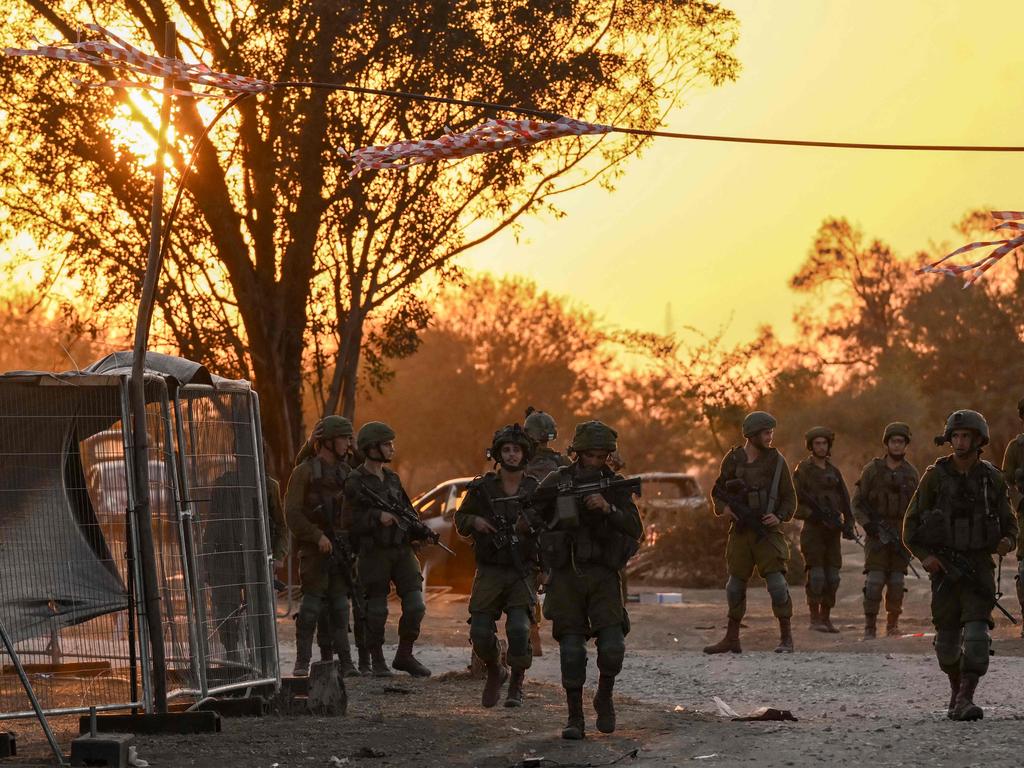
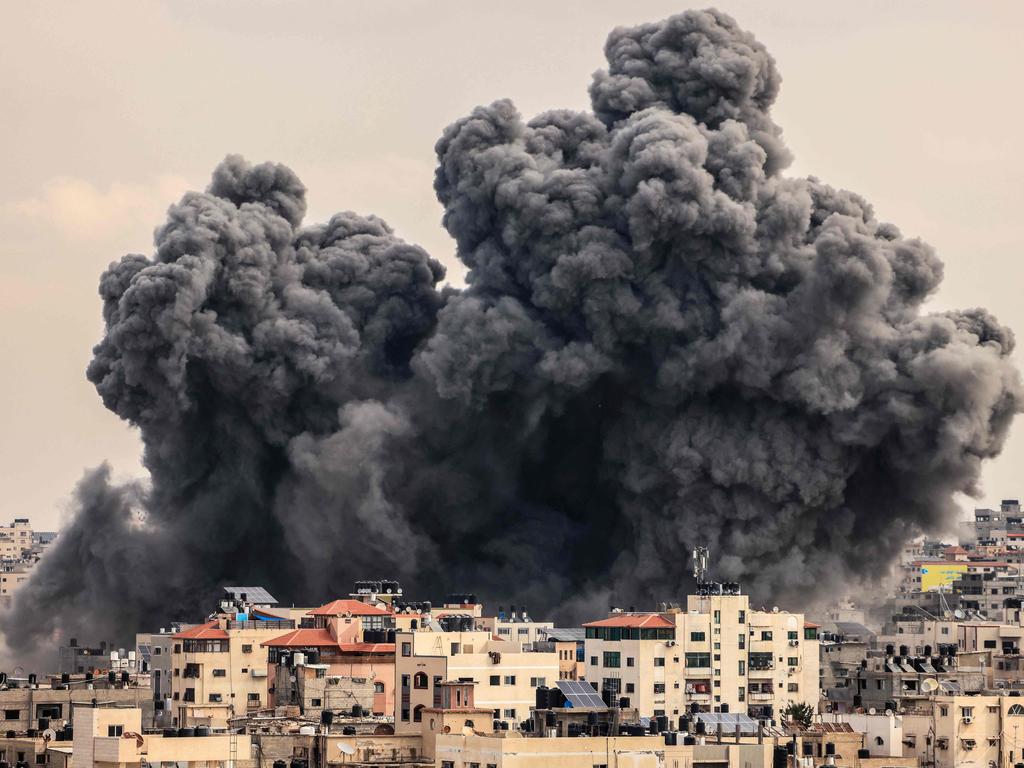
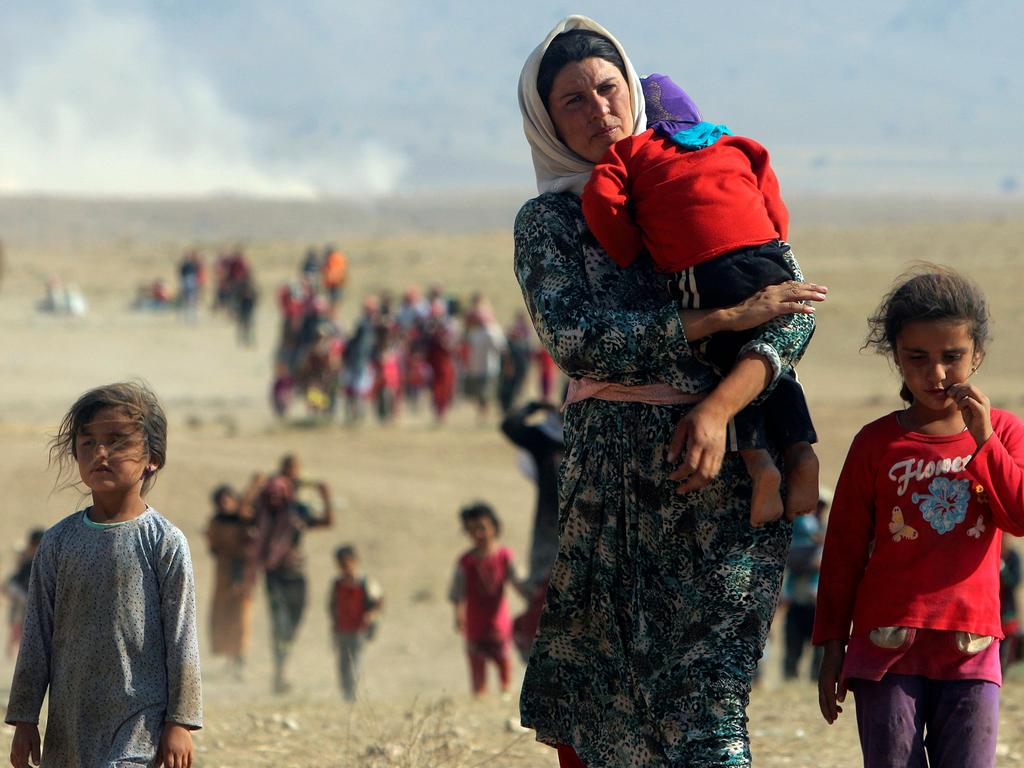
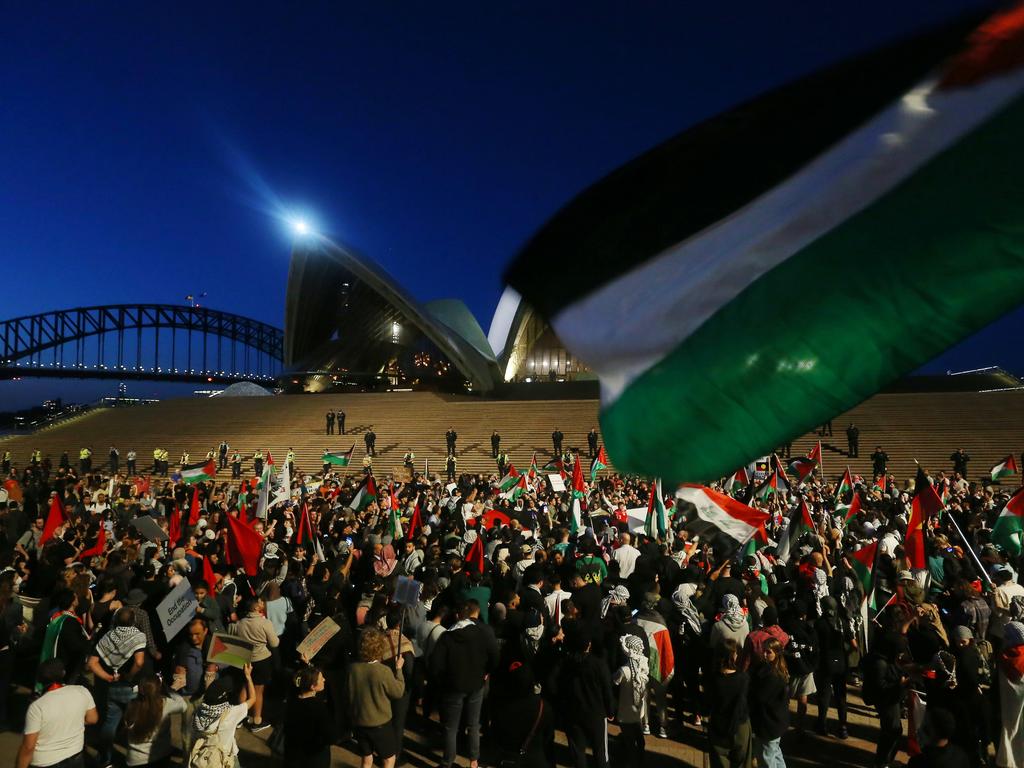


The Labor Party is going to be engulfed again in the politics of the Israeli-Palestinian crisis. All week Anthony Albanese walked a hazardous path – gradually increasing the tenor of his support for Israel, aware of the strong pro-Palestinian sentiment within Labor and alert to the threat to social cohesion from a new Middle East conflict.